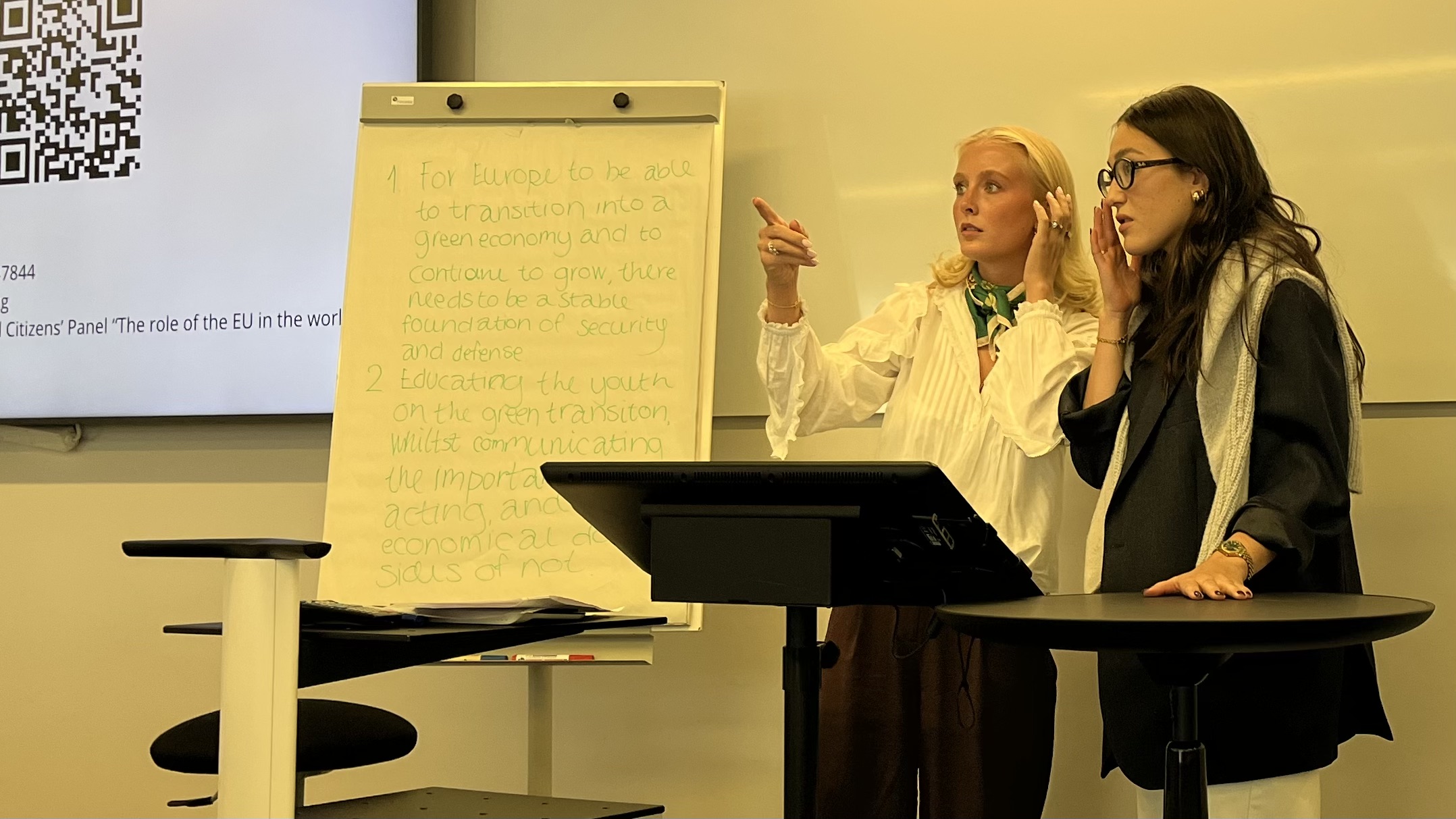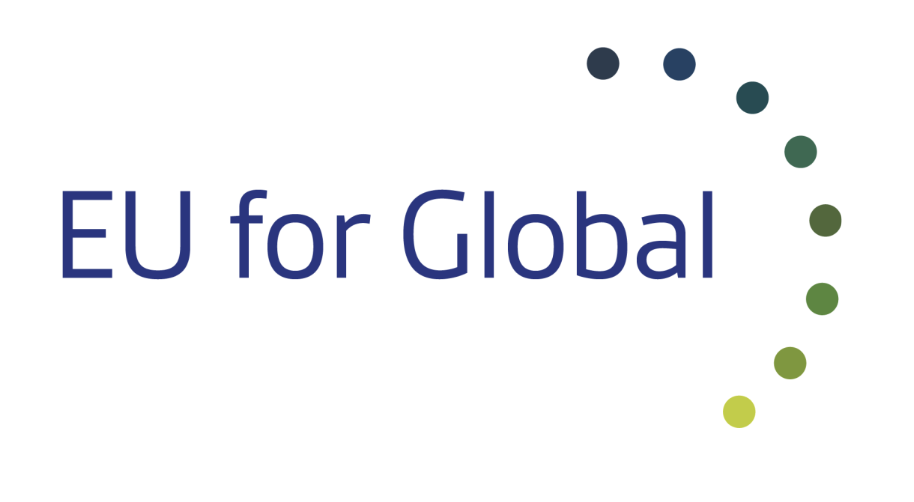
The Transnational Citizen’s Panel hosted by IE University in Madrid, Spain on the 27th of September, 2025 in three discussion Panels explored how Europe’s relationships with key regions: the Americas, Africa, and Asia, can evolve amid shifting power balances and global challenges.
The following is a list of recommendations from each of the three discussions.
Panel Discussion I: Europe & Transatlantic Relations: Security, Democracy, Trade and Green Transition
- Rebuild Transatlantic Trust:
Engage constructively with the US while defending EU autonomy; Reinforce institutional dialogue (Commission-level) instead of fragmented bilateral contacts. - Promote Strategic Autonomy:
Diversify partnerships with countries like India, Indonesia, and Mexico; Strengthen Europe’s defence integration, including proposals such as an “Erasmus for soldiers.” - Reaffirm European Values and Multilateralism:
Uphold democracy, non-discrimination, and rule of law as non-negotiable principles; Continue leading in global governance, trade, and standard setting. - Address Democratic Backsliding:
Expand EU civic education and visibility on social media; Counter misinformation and highlight tangible EU achievements. - Advance the Green Transition as a Unifying Project:
Frame climate action as an opportunity for growth, innovation, and solidarity; Invest in new technologies and sustainable industries while maintaining social cohesion. - Improve NATO Coordination and Efficiency:
Focus on better coordination and intelligent spending, rather than symbolic GDP targets.
Panel Discussion II: Europe & Africa Relations. Security, Democracy, Trade and Green Transition
- Redefine the EU–Africa Partnership:
Shift from a donor–recipient mindset to a mutual, opportunity-based relationship; Recognize Africa’s demographic growth as both a challenge and a chance for joint prosperity. - Support Democratic Development from the Ground Up:
Encourage grassroots democratic processes instead of imposing external models; Link democracy to tangible improvements in livelihoods, health, and education. - Reform Aid to Promote Accountability and Local Ownership:
Replace fragmented aid with a coordinated mechanism (possibly via the African Union) ; Prioritize transparency and incentive-based funding over unconditional assistance; Learn from the Marshall Plan model — invest in infrastructure, education, and human capital. - Foster Fair and Sustainable Trade:
Implement Corporate Sustainability Due Diligence to ensure ethical supply chains; Balance fair trade with support for European farmers, avoiding contradictions in EU policy; Support African integration to strengthen regional markets and reduce dependence. - Advance a Shared Green Transition:
Avoid imposing European models; incentivize climate cooperation and clean innovation; Address climate migration and develop joint resilience strategies; Frame the green transition as a win–win opportunity for sustainable growth. - Reinvest in Humanitarian and Development Funding:
Counteract the impact of aid cuts and strengthen partnerships with philanthropists and private actors; Focus on health, child protection, and youth employment to prevent instability. - Empower the African Union:
Promote African-led integration and political coordination, mirroring early EU experiences; Support the formation of educated elites and young leaders who can drive Africa’s internal development. - Reframe Public Perceptions in Europe:
Combat misinformation and fear-based narratives around migration; Highlight the shared interests and cultural ties between Europe and Africa.
Panel Discussion III: Europe & Asia Relations: Security, Democracy, Trade and Green Transition
- Reinforce EU–Asia Partnership through Pragmatic Cooperation:
Recognize Asia’s diversity and engage through flexible, country-specific strategies; Prioritize cooperation in areas of mutual benefit such as digitalisation, climate adaptation, and sustainable trade. - Advance the Green Transition through Joint Investment and Fair Standards:
Use the CBAM (Carbon Border Adjustment Mechanism) as a cooperative tool rather than a punitive one; Simplify regulatory frameworks to include smaller Asian economies; Leverage EU standard-setting power while promoting technology exchange and investment. - Enhance Security Collaboration Beyond Military Means:
Strengthen maritime, cyber, and economic security partnerships, particularly with Japan, South Korea, and ASEAN; Develop joint mechanisms for supply chain resilience and critical raw material access; Position the EU as a geopolitical actor capable of ensuring stability through diplomacy and cooperation. - Balance Normative Power and Strategic Interests:
Combine Europe’s traditional regulatory influence (“Brussels Effect”) with a more hands-on, transactional approach; Encourage dialogue with China and other Asian partners to depoliticize cooperation, focusing on shared goals such as green growth and innovation. - Promote People-to-People and Educational Exchange:
Expand EU delegations and cultural diplomacy across Asia; Enhance programs like the EU Blue Card to attract skilled workers and strengthen mutual understanding. - Tackle Migration and Development Issues Responsibly:
Avoid financing authoritarian regimes to contain migration; Support locally driven development projects addressing root causes of migration and socio-economic instability; Encourage grassroots initiatives and invest in local expertise rather than imposing external models. - Combat Disinformation and Improve EU Communication:
Foster media literacy and critical thinking through education; Simplify access to EU information platforms and promote transparency in communication; Ensure pluralism and fairness in public discourse to counter polarization without censorship. - Educate and Engage Citizens on the Green Economy:
Shift the narrative from moral duty to economic and security opportunity; Target younger generations with concrete, evidence-based messages on the benefits of the green transition.
The EU for Global project is funded by the European Union. Views and opinions expressed are however those of the author(s) only and do not necessarily reflect those of the European Union or CERV. Neither the European Union nor the granting authority can be held responsible for them.

